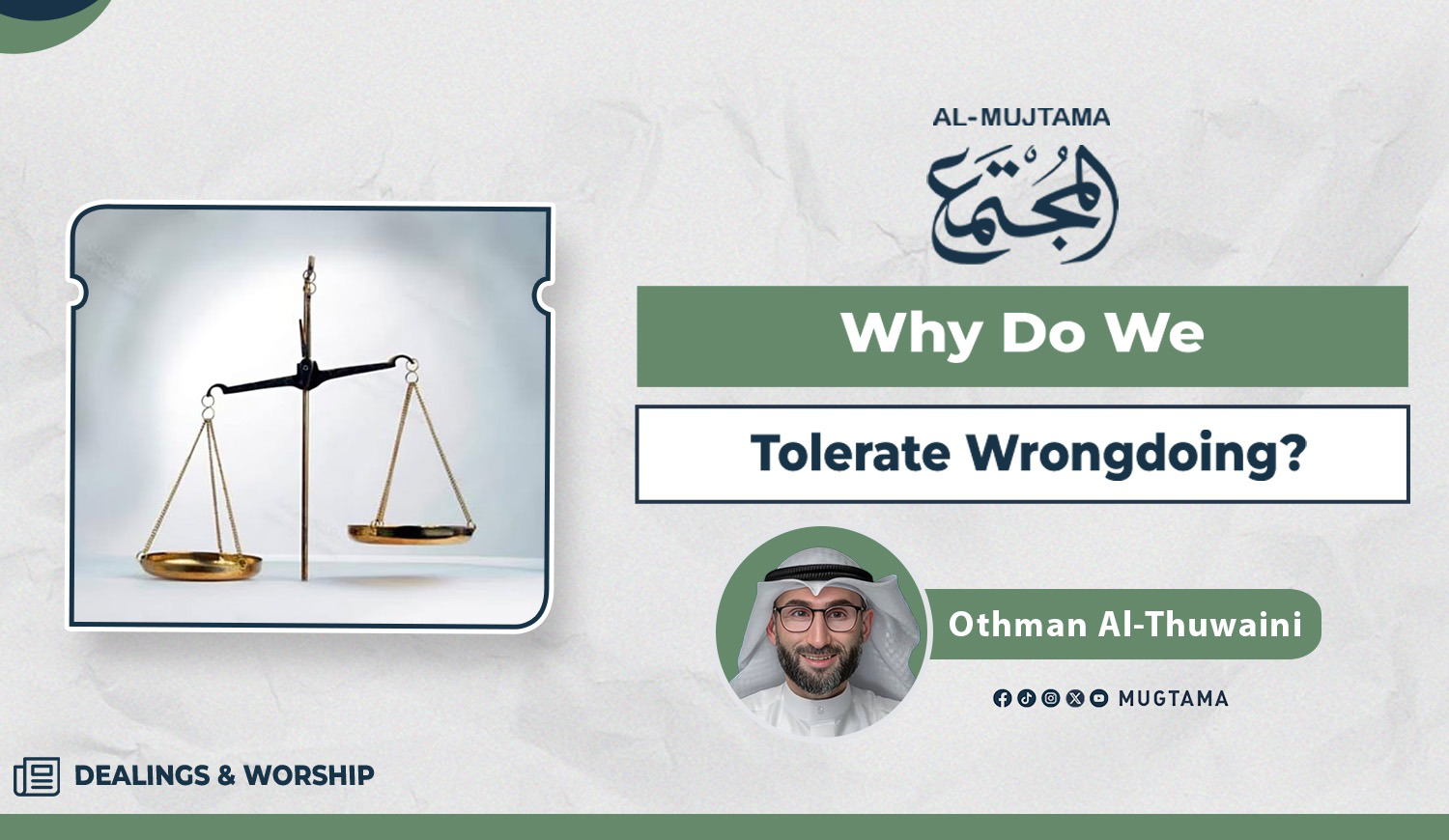Why Do We Tolerate Wrongdoing?

At the beginning, evil was not
accepted by people. They saw it as something foreign to their lives, contrary
to what they were accustomed to from their innate nature and faith. Hearts
would feel repulsed by it, tongues would denounce it, and sound natures would
instinctively turn away from it.
But over time—with repetition, justification, and social and media
pressure—evil begins to find a place in homes, streets, and institutions, until
it quietly infiltrates the individual soul. It no longer shocks or stirs the
conscience.
This marks the most dangerous stage: the stage of familiarity with evil, when a
person loses the inner heat of rejection, and his heart becomes filled with a
deadly silence that no longer knows how to object.
Gradual Normalization with Evil
This familiarity is not a passing
emotional state but rather a gradual process of normalization with corruption
and deviation. It is fueled by targeted media, lenient culture, and a socially
influenced environment — sometimes even the family itself.
When a child witnesses wrongdoing at home without being taught it is wrong, or
when a young person sees manifestations of corruption in society without anyone
correcting them, a false belief grows within him: that such acts are normal,
unworthy of notice.
Thus, a generation arises that does not reject evil
because it was never raised to sense its ugliness — and worse, it may even view
those who reject it as extreme or intolerant.
Causes Behind Weak Faith and Accepting Falsehood
At the root of this problem lies
weak faith. A living heart delights in righteousness and recoils from evil.
When faith weakens, the greatest calamity strikes — becoming accustomed to
falsehood.
Other factors deepen this weakness:
- Social pressure, which normalizes the
forbidden when it becomes widespread.
- The dominance of media, which fabricates false role models and reshapes public taste, linking
corruption with success, attraction, or freedom.
- Weak family upbringing, when parents neglect their duty to correct
mistakes, raising children to accept anything without moral filtering.
- Globalization,
which dissolves moral and cultural boundaries, imposes a single lifestyle,
and makes sins easily accessible, until one can hardly find a space free
of their call.
The Collapse of the Duty to Enjoin Good and Forbid Evil
The gravest consequence of this
normalization is that it strikes at the very heart of the duty to enjoin good and forbid evil.
It strips people of the spirit of initiative to object to wrongdoing until good
becomes strange and evil becomes familiar.
Thus, the Ummah loses the defining quality that Allah Granted it: {You are the best community ever raised for humanity—you
encourage good, forbid evil, and believe in Allah.} [Ali `Imran, 3:110]
When this trait disappears,
faith-based identity erodes, and society loses its internal immunity. People
cease to object or prevent wrongdoing, and the collective punishment mentioned
in the divine texts descends upon them.
Reviving the Heart and Cultivating Conscious
The solution begins with reviving
the heart through faith, for a living heart is an alarm system that prevents
slipping into the swamp of moral familiarity.
It also begins with conscious upbringing that plants in children from an early age a sense of modesty
toward sin and protective jealousy over righteousness.
Society further needs responsible media that restores balance and reaffirms
genuine moral values instead of promoting deviation.
Moreover, truthful voices are
needed in every home, school, and mosque — voices that remind people of the
danger of normalizing sin and revive the duty of moral correction with wisdom
and gentleness. Such an approach does not alienate but opens doors for
repentance and return to Allah.
When these efforts unite, evil will return to its rightful place — strange and
rejected, while good will reclaim its honored and living position in the hearts
and lives of people.
Also Read:
- Restoring Morality into Society
- Ability in Islam: Balancing Duty and Mercy
- 10 Dangers of Sympathizing with Oppressors in Islam
-------------------------------------------------------------










